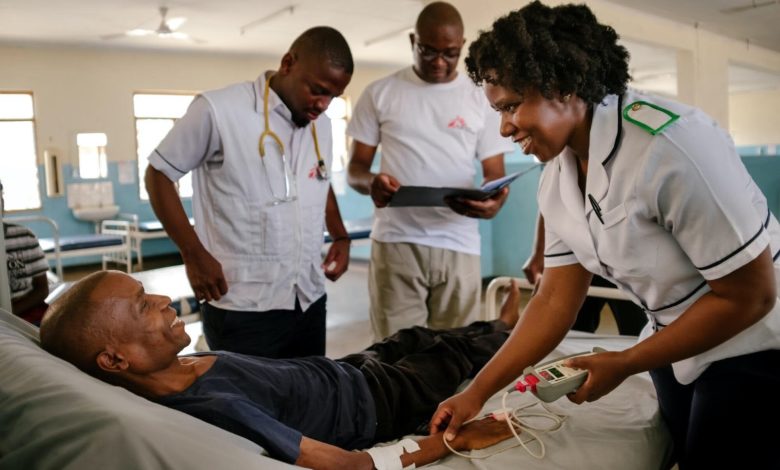Community-Led HIV Responses Need Increased Support In West And Central Africa

The West and Central Africa region continues to lag behind in response to Human Immuno-deficiency Virus (HIV).
This has led to insufficient coverage of Anti Retroviral (ARV) treatment and HIV prevention, in general, and in particular for children and key populations.
Reports show that funding for HIV Community-Led responses remains unacceptably low and completely off track to the 2016 Global political commitments ‘to ensure 30 per cent of all service delivery for HIV is Community-Led by 2030’.
A report by AIDSFonds shows that whereas 39 per cent of all new HIV infections in 2018 were recorded among key populations in West and Central Africa, only 2 per cent of HIV resources were targeted to their Community-Led interventions in the period 2016-2018.
This raises a question about how community organizations supposed to strengthen their capacity and preserve independent voice and action when resources agenda does not prioritize them.
The 47th UNAIDS Programme Coordinating Board (PCB), meeting from December 15 to 18, will discuss key elements of the next UNAIDS strategy 2021-2025.
Global Fund and PEPFAR among other key health actors will update their funding and program strategies in 2021.
These plans will determine to a large extent how sufficient progress can be made in reducing the burden of death, illness and social effects of HIV, set the HIV response back on track within the context of COVID-19.
Ahead of the PCB meeting, Medecin Sans Frontieres (MSF) and 25 other community and civil society organizations are calling on key HIV programming decision-makers to increase engagement with and support to people living with HIV (PLHIV) and community organizations in West and Central Africa.
The document ‘Community-Led interventions: Sound investment for an effective HIV response in West and Central Africa’ calls for bold commitments in order to provide resources, participation and leadership to those organizations to advance towards an effective HIV response that delivers on its targets and goals.
All key actors in the policy and implementation of HIV programs agree that putting the person at the centre of the epidemic response is important.
However, this rhetoric is not followed by actions at all because communities continue to be sidelined in resource allocation and implementation opportunities within the response.
Their voices are almost not heard, their participation tokenistic at best. This is unacceptable.
If health actors are truly committed to achieving the 2030 global goal of ending AIDS, then we must begin right now to see a shift towards a bold commitment and actions that will validate the role of Community-Led interventions in West and Central Africa.
The 47th UNAIDS PCB is a critical opportunity to put the spotlight on the urgent need to increase efforts towards increased coverage in the West and Central Africa region.
Accelerating the implementation of Community-Led responses is key to achieving this and integrating them as a central element into health actors’ plans is long overdue.
In 2019 the region accounted for 21 per cent of new HIV infections worldwide and 30 per cent of deaths from AIDS-related illnesses. Adolescent girls and young women remain particularly at risk of acquiring HIV.
Women and girls accounted for 58 per cent of the estimated 240,000 new infections in the region the same year.
The impact of Community-Led interventions in HIV and other health responses has been documented as key to scaling up and improving program outcomes which positively impact people’s health.
When people living with HIV, most impacted by HIV or at the highest risk of acquiring HIV have space and are adequately resourced, they secure services that improve quality of life for all, particularly the most vulnerable, marginalized and excluded populations.
Support Our Journalism
There are millions of ordinary people affected by conflict in Africa whose stories are missing in the mainstream media. HumAngle is determined to tell those challenging and under-reported stories, hoping that the people impacted by these conflicts will find the safety and security they deserve.
To ensure that we continue to provide public service coverage, we have a small favour to ask you. We want you to be part of our journalistic endeavour by contributing a token to us.
Your donation will further promote a robust, free, and independent media.
Donate HereStay Closer To The Stories That Matter




